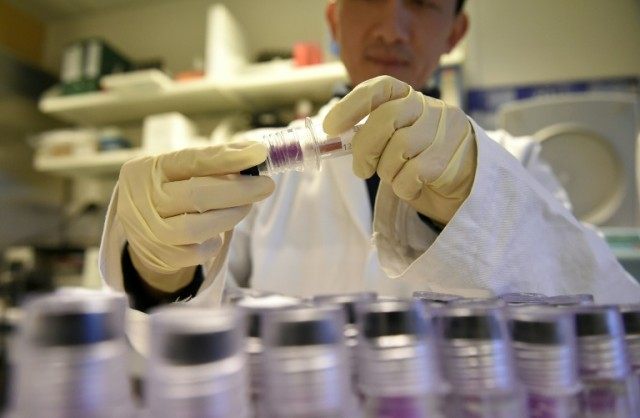Chinese scientists have become the first to test gene editing, using injected cells containing edited genes that use the CRISPR–Cas9 technique.
On October 28, a team of oncologists led by Lu You at Sichuan University in Chengdu injected the modified cells into a patient with aggressive lung cancer as part of a clinical trial at the West China Hospital and became the first to use the CRISPR-Cas9 technique, Nature reported.
Unlike earlier clinical trials that used different techniques, the CRISPR technique is supposed to be simpler and more efficient than other techniques, says Carl June, an immunotherapy specialist at the University of Pennsylvania.
“I think this is going to trigger ‘Sputnik 2.0’, a biomedical duel on progress between China and the United States, which is important since competition usually improves the end product,” he says.
Researchers removed immune cells from the recipient’s blood and used the CRISPR-Cas9 technique to disable a gene in those immune cells.
The technique puts together a DNA-cutting enzyme with a molecular guide that can be programmed to tell the enzyme exactly where to cut.
The disabled gene usually stops a cell’s immune response, which is why many cancers become malignant and spread throughout the body.
Lu’s team increased the number of edited cells through culturing and injected them back into the lung cancer patient.
Lu said the treatment went as planned and the patient will get a second injection.
The ten patients in the trial are expected to receive two, three, or four injections.
A trial using CRISPR is being planned in the U.S., where three types of genes will be used in the hopes of treating different types of cancers.
The trial is expected to start in 2017.
A group at Peking University in Beijing wants to start three clinical trials in March 2017 using CRISPR against bladder, prostate and renal-cell cancers, but those trials do not yet have approval or funding.

COMMENTS
Please let us know if you're having issues with commenting.